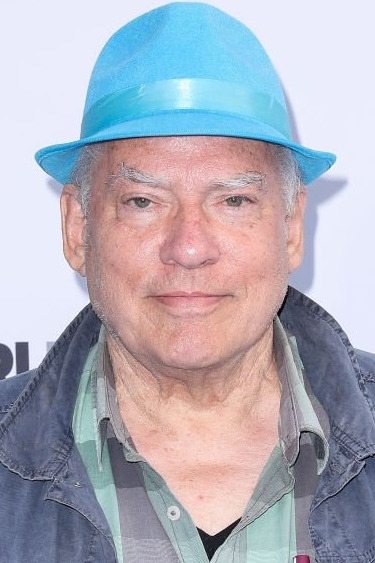
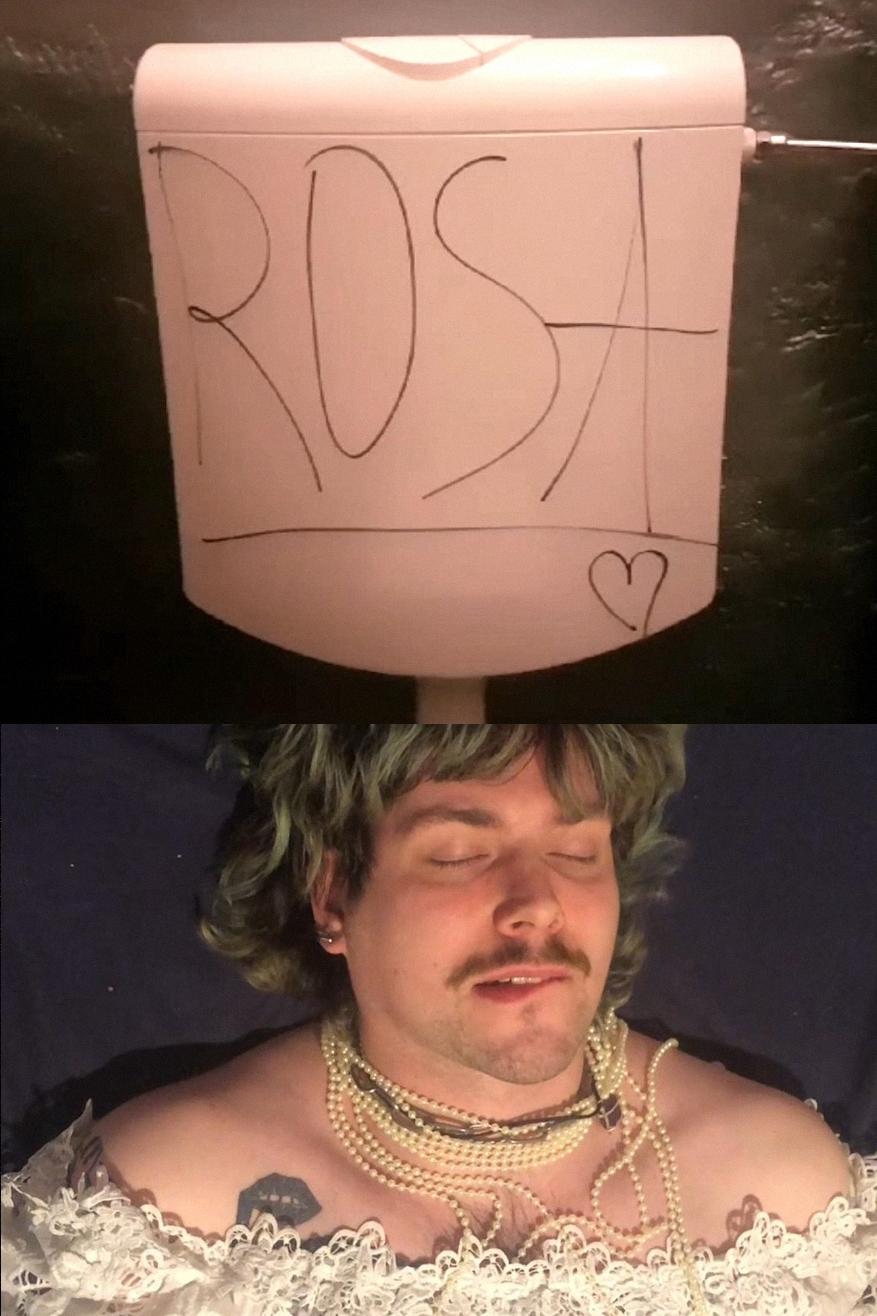
A sensual hommage to Germany's most productive queer filmmaker, Rosa von Praunheim.

To mark the 60th birthday of the multi-talented comedian, singer and author Hape Kerkeling, the two documentary filmmakers André Schäfer and Eric Friedler have created a quiet, thoughtful and entertaining portrait of this often anarchic humorist. The film tells of his rapid rise as a teenager, his time and the blows of fate during the AIDS epidemic, the controversial forced outing, his confident exit from the show business and his new beginning. The film is a sensitive insight into the family history and a fast-paced journey through the career stages of a formative figure in German TV entertainment.
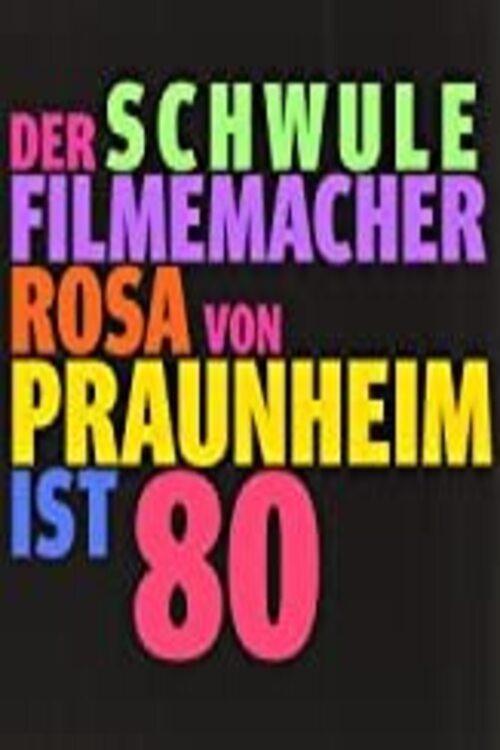
Rosa von Praunheim has made 150 films and repeatedly provoked the middle-class to homophobic majority society. But he doesn't spare his own community either by accusing many gays of being conformist soft-spoken people; and by outing some prominent homosexuals against their will, he has made many enemies. For the younger generation of LGBTIQ activists, Rosa von Praunheim is still known as a figure from the early phase of the queer movement, but as a white cis man he hardly gets a hearing there. However, Rosa does not want to argue and theorize, but above all to live out his creativity. Sometimes narcissistic, sometimes angry and combative, sometimes anxious - and always with his own style. Companions such as the comic book creator Ralf König, the producer Regina Ziegler and the New York publicist Brandon Judell pay tribute to the artist and activist Rosa von Praunheim, who calls himself a “lucky child” because he was mostly able to do what he felt like doing.
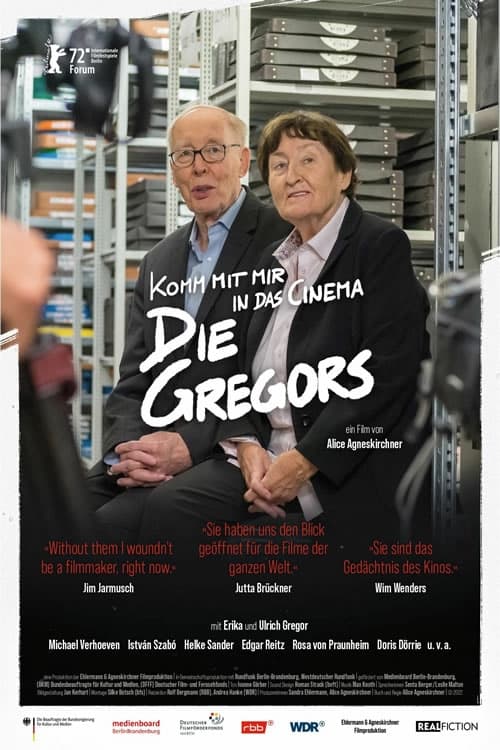
From the 1950s onwards, Erika and Ulrich Gregor brought countless film historical milestones to Berlin and shaped cinema discourse in post-war Germany. A look at the life and work of the couple without whom Arsenal and the Forum wouldn’t exist.
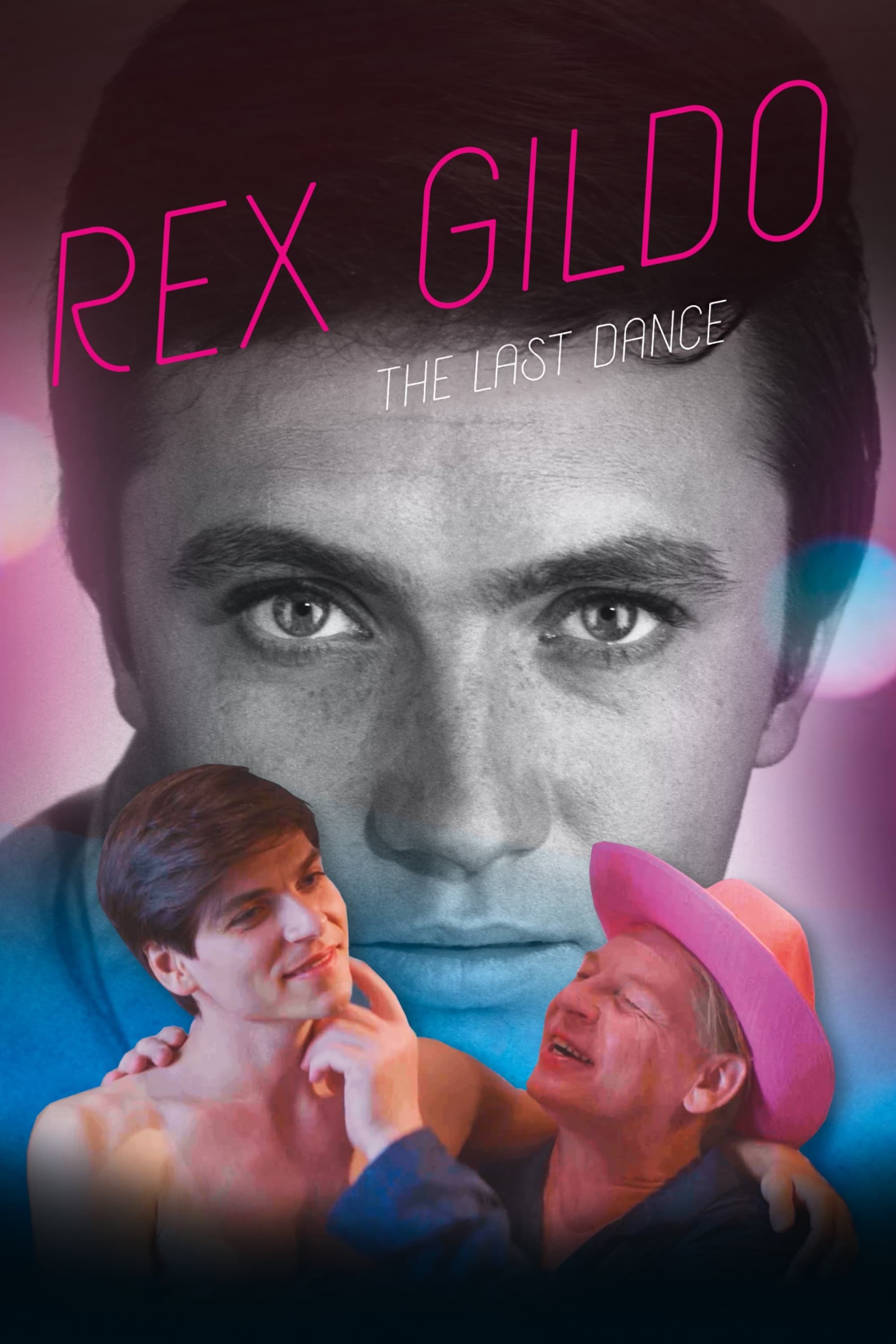
Rex Gildo’s songs and musicals made him very popular. His best-known song was “Fiesta Mexicana” from 1972. Rosa von Praunheim tells the story of his life in the context of the gay pride movement, the normative pressures of the Schlager music industry, and the profound changes currently underway.
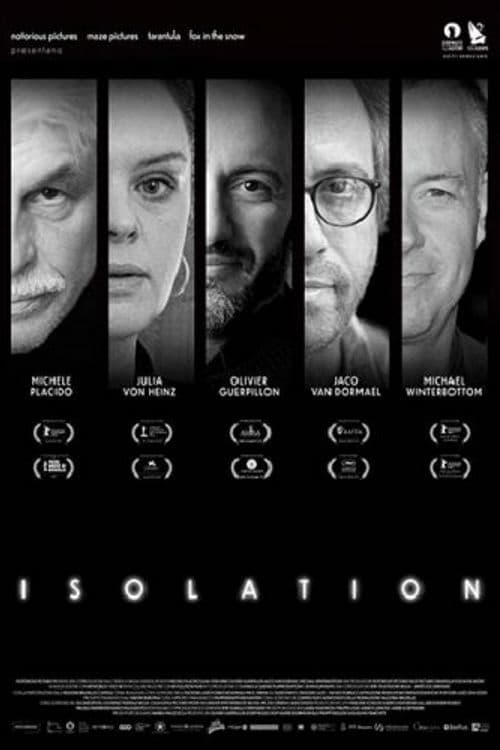
A collective documentary film, from five european directors asked to witness the revolutions and dramas caused in their own countries by the pandemic. Among them, “Two Fathers”, directed by Julia von Heinz (20’). After the death of his father, Hans-Michael von Heinz, the director finds out the truth about her parent true sexual identity. In order to know more, she starts emailing persons who got to know him over the last years, among them his closest friend, director Rosa von Praunheim.
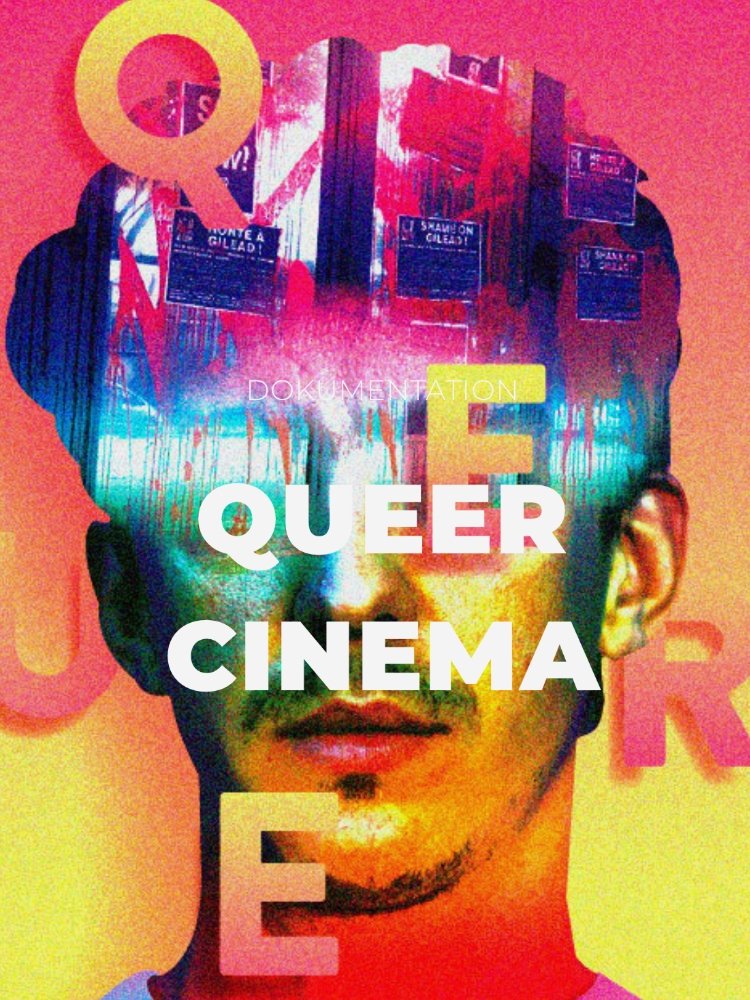
How gay, how lesbian, how trans is German cinema? A 3sat documentary looks back at 100 years of queer film history.
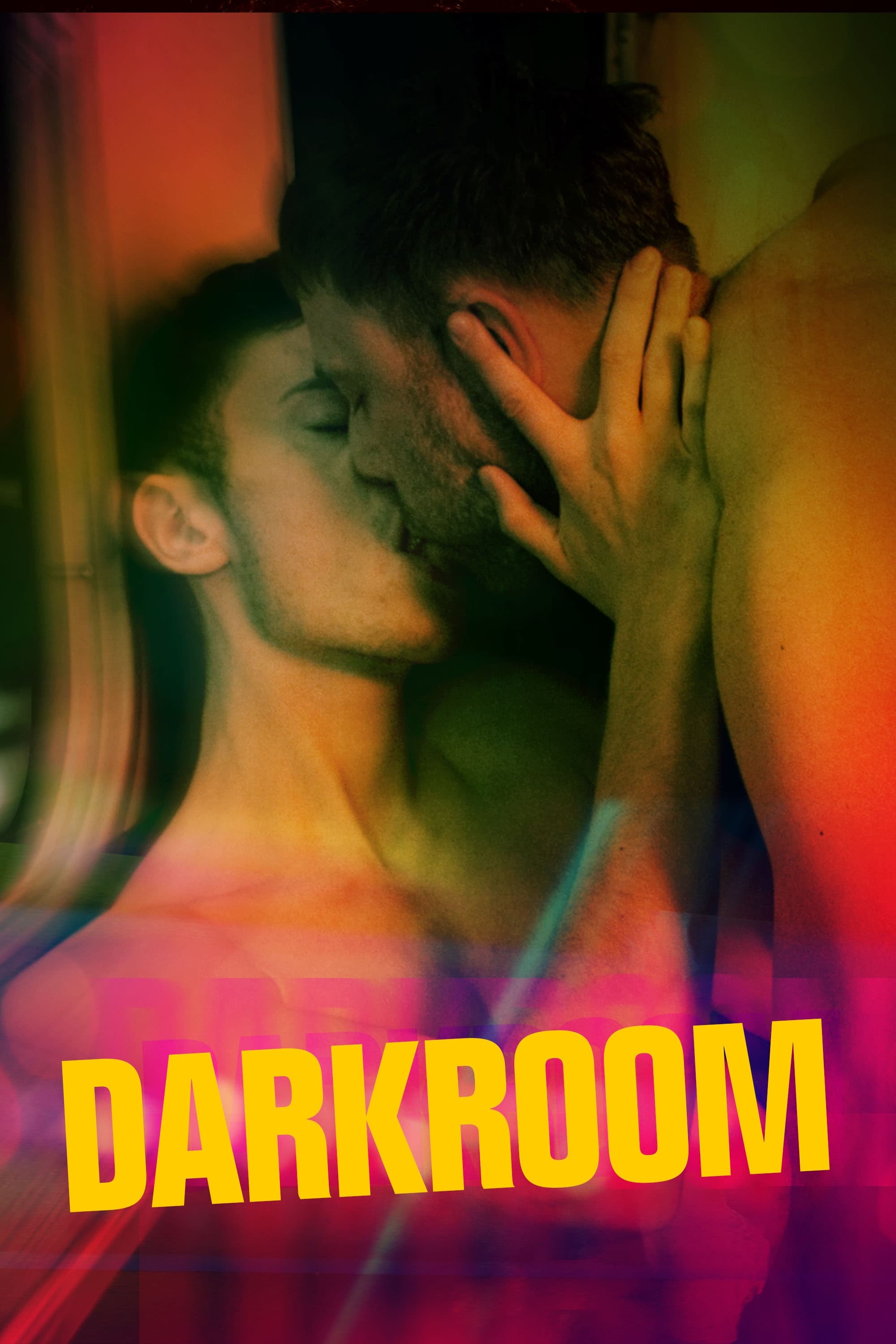
Lars, a male nurse from Saarbrücken, moves to Berlin with his lover, Roland. They begin to renovate an apartment and their happiness seems almost complete. What Roland doesn’t know is that, while secretly checking out Berlin’s night life, Lars is also experimenting with a deadly poison.
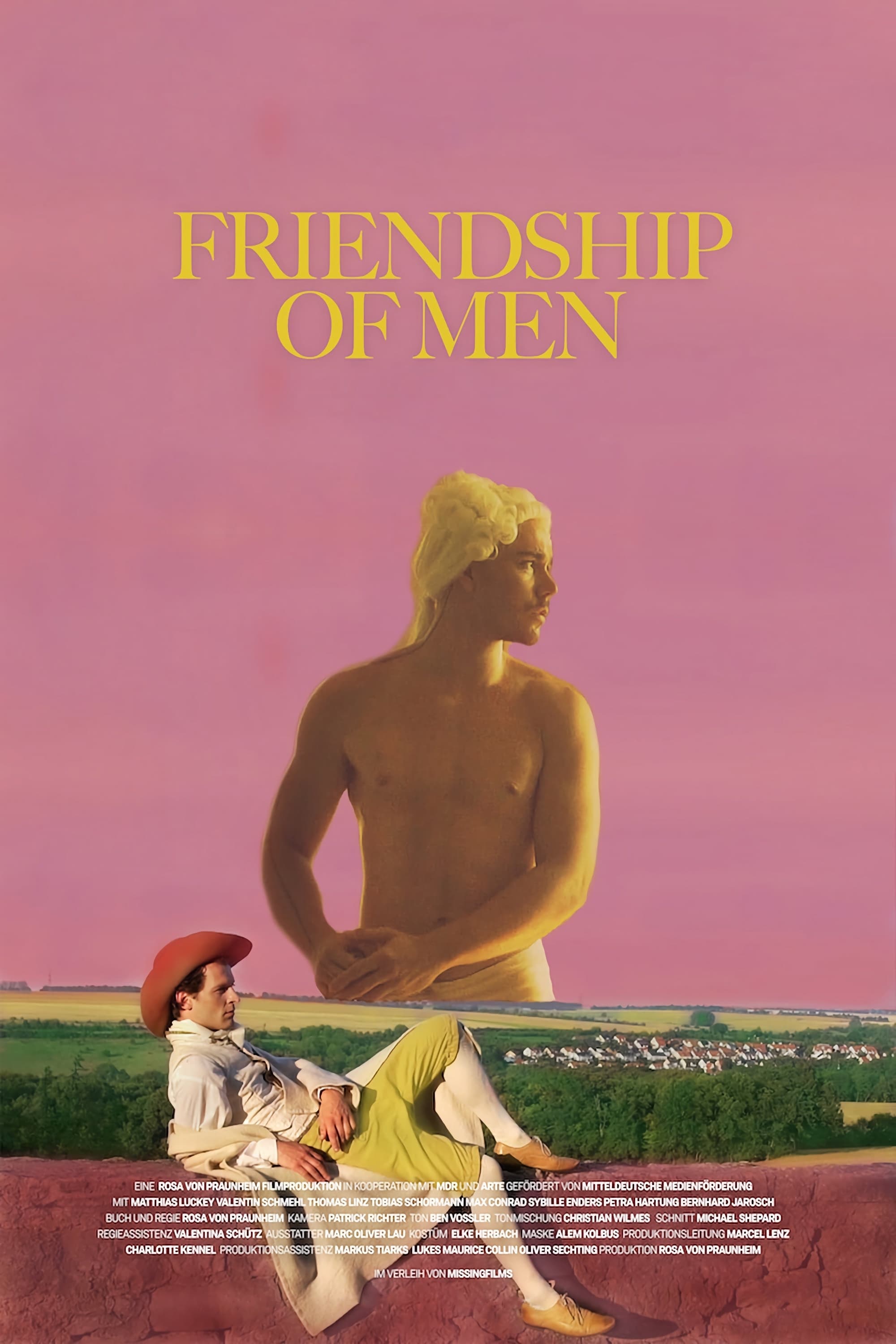
In this docudrama Rosa von Praunheim looks into Johann Wolfgang von Goethe’s sexual orientation, especially into his erotic experiences during his travels in Italy. Contrary to the common belief, von Praunheim argues that Goethe was not a heartbreaker and conqueror after all. It was only in Italy, that he had diverse sexual experiences, not least with men. Von Praunheim bases his assumption on letters written by Goethe to his friend Friedrich Heinrich Jacobi about these sexual encounters. Some of the content of these letters is re-encated in the film. At the same time, historians and linguists analyse and classify the letters into their historical context.
Rosa von Praunheim, born Holger Bernhard Bruno Waldemar Mischwitzky, is a German film director, author, painter and the most famous gay rights activist in Germany, Austria and Switzerland. A prolific director, he has made over seventy feature films. He began his career associated to the New German Cinema as a senior member of the Berlin school of underground filmmaking. He took the artistic female name Rosa von Praunheim to remind people of the pink triangle that homosexuals had to wear in Nazi concentration camps.